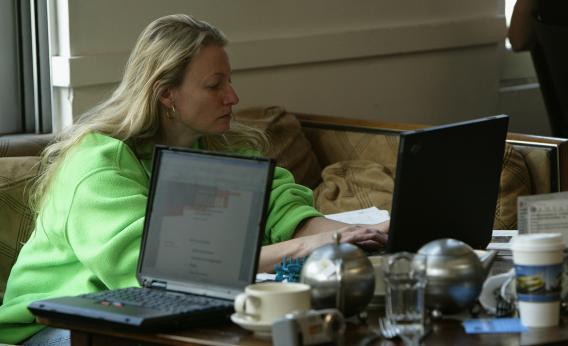If you’ve ever cared about privacy while using the Internet in public, you might be a terrorist. At least that’s the message from the FBI and Justice Department’s Communities Against Terrorism initiative. The project created flyers to help employees at several types of businesses—including military surplus stores, financial institutions, and even tattoo shops—recognize “warning signs” of terrorism or extremism. An admirable goal, perhaps, but the execution is flawed—particularly for the flyers intended to help suss out terrorists using Internet cafes.
The flyers haven’t been publicly available online, but Public Intelligence, a project promoting the right to access information, collected 25 documents that it found elsewhere on the Web. As Public Intelligence puts it, “Do you like online privacy? You may be a terrorist.”
You see, a terrorist using an Internet cafes would be “overly concerned about privacy,” for one. He might keep someone from peering over his shoulder, or maybe he’d conceal his IP address with a service like Tor.
The message this sends is that anyone trying to protect their online privacy is probably doing something bad. (Other ridiculous red flags include downloading a map of local transit or looking at photos of populated areas.)
Tor responded to the flyer with a tweet saying, “We’ve been called torrorists before, but seriously, this?” It also prompted followers to design a shirt saying “I am a torrorist” that would go up for sale online. (And for anyone wondering how Tor is used for legitimate, non-terrorist purposes, here’s a detailed list.)
Many of the actions listed should reasonably arouse suspicion, like downloading how-to guides for explosives or purchasing certain chemicals. But others are perfectly logical activities (except, by default, traveling an “illogical distance to use Internet Café”)—even good habits, given how lax many of us are about Internet privacy. The flyer itself points this out, saying each individual activity is legal and there may be an innocent explanation for what appears to be suspicious. But focusing so heavily on activities as common and sensitive as trying to keep the guy at the next computer from looking at your email serves no real purpose.
